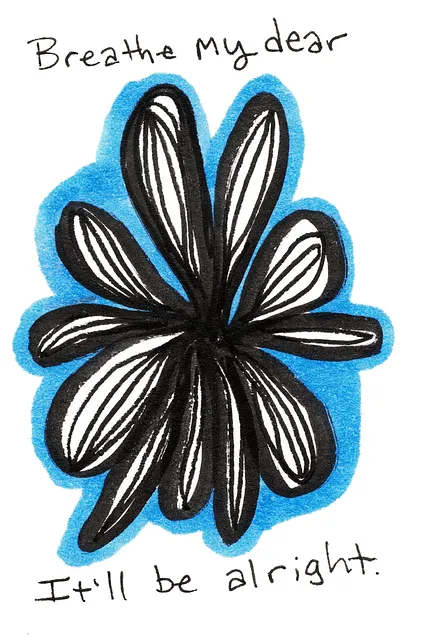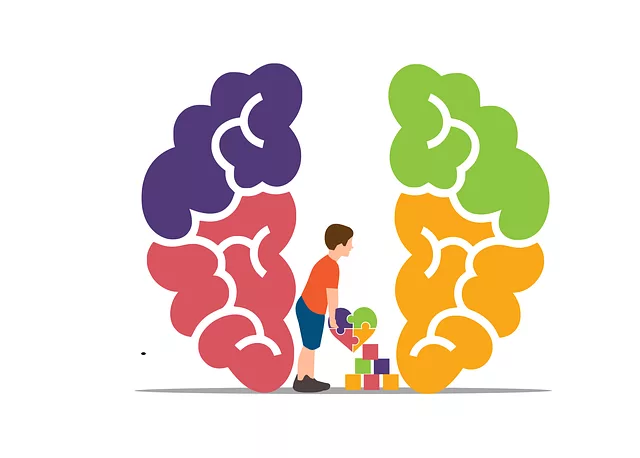Group facilitation in the mental health sector, exemplified by institutions like Parker Kaiser Permanente, offers powerful support through collaborative sessions. These groups foster community and peer support, allowing participants to build resilience, learn coping strategies, and navigate challenges collectively. Effective communication techniques, such as active listening and mindfulness practices, are key to successful group dynamics, encouraging meaningful connections and self-esteem improvement. The Parker Kaiser Permanente mental health department prioritizes a safe, inclusive environment through structured activities, open dialogue, and diverse perspective encouragement, fostering healing and connection. Their comprehensive approach combines robust assessment tools, dynamic facilitation methods, regular evaluations, and public awareness campaigns for optimal mental wellness outcomes.
In today’s digital age, group facilitation techniques play a pivotal role in supporting mental wellness within healthcare settings, particularly at renowned institutions like Parker Kaiser Permanente. This article delves into the art and science of group therapy, focusing on its effectiveness within the mental health department at Parker Kaiser Permanente (a leading provider serving tens of thousands). We explore strategies for fostering safe, inclusive environments, effective communication, and measuring outcomes to enhance healing journeys.
- Understanding the Role of Group Facilitation in Mental Health Support
- Effective Communication Strategies for Group Settings
- Creating a Safe and Inclusive Environment: Key Techniques
- Measuring and Enhancing Group Therapy Outcomes at Parker Kaiser Permanente
Understanding the Role of Group Facilitation in Mental Health Support

In the realm of mental health support, group facilitation plays a pivotal role, especially within institutions like Parker Kaiser Permanente’s department, which prioritises comprehensive care. This approach offers individuals facing similar challenges a unique space to connect, share experiences, and gain invaluable peer support. By fostering a sense of community, group facilitators can enhance participants’ understanding of their conditions and equip them with effective coping strategies.
Effective group facilitation techniques are essential for organisations like Stress Management Workshops Organization, which aim to provide Trauma Support Services. These sessions go beyond individual therapy by creating a supportive environment where members can build resilience, boost confidence, and navigate their mental health journeys together. This collaborative approach has been shown to significantly improve outcomes, offering an alternative path to traditional one-on-one therapy for many individuals seeking support.
Effective Communication Strategies for Group Settings

Effective communication is a cornerstone when facilitating mental wellness groups, as it paves the way for meaningful connections and profound discussions. Group settings demand a nuanced approach to dialogue, where facilitators must juggle diverse perspectives, emotions, and experiences. The Parker Kaiser Permanente mental health department emphasizes this aspect, recognizing that open and inclusive communication fosters a safe environment for members to share their journeys and support one another.
Facilitators should employ techniques such as active listening, encouraging participants to express their thoughts openly without judgment. Incorporating practices like mindfulness meditation can enhance focus during group conversations, allowing individuals to explore their feelings deeply. Additionally, building resilience through interactive exercises enables members to navigate challenging topics constructively, fostering a supportive atmosphere that promotes self-esteem improvement across the board.
Creating a Safe and Inclusive Environment: Key Techniques

Creating a safe and inclusive environment is a cornerstone of effective group facilitation, particularly within the context of the Parker Kaiser Permanente mental health department. This involves fostering an atmosphere where every participant feels seen, heard, and respected. Techniques such as active listening, open-ended questions, and encouraging diverse perspectives help to build a strong sense of community. By promoting empathy and understanding, facilitators can ensure that all voices are valued, contributing to a supportive space for sharing and growth.
Furthermore, incorporating structured activities like mental wellness journaling exercises and guidance on stress management and resilience building can significantly enhance the group’s dynamics. These practices not only encourage self-reflection but also equip members with tools to navigate challenges. Through consistent emphasis on inclusivity and evidence-based strategies, facilitators create an environment conducive to healing, connection, and overall mental wellness.
Measuring and Enhancing Group Therapy Outcomes at Parker Kaiser Permanente

At Parker Kaiser Permanente, measuring and enhancing group therapy outcomes is a multifaceted approach that combines rigorous assessment tools with innovative facilitation techniques. The mental health department utilizes various metrics to gauge progress, ensuring each participant’s emotional well-being promotion techniques are tailored to their unique needs. Through regular evaluations and feedback mechanisms, therapists can adapt their strategies, fostering a supportive environment that encourages open dialogue and profound personal growth.
One notable initiative is the development of public awareness campaigns centered around mind over matter principles. These campaigns play a crucial role in normalizing conversations about mental health while offering practical tools for coping with stress and adversity. By integrating these public awareness efforts into group therapy sessions, Parker Kaiser Permanente aims to create a comprehensive support system that extends far beyond individual treatment, fostering a sense of community and collective resilience among participants.
Group facilitation plays a vital role in enhancing mental wellness, as evidenced by successful initiatives like those seen within the Parker Kaiser Permanente mental health department. By employing effective communication strategies and creating safe, inclusive environments, facilitators can significantly improve group therapy outcomes. These techniques, detailed throughout this article, are essential tools for professionals aiming to support individuals navigating mental health challenges in a collaborative setting.


